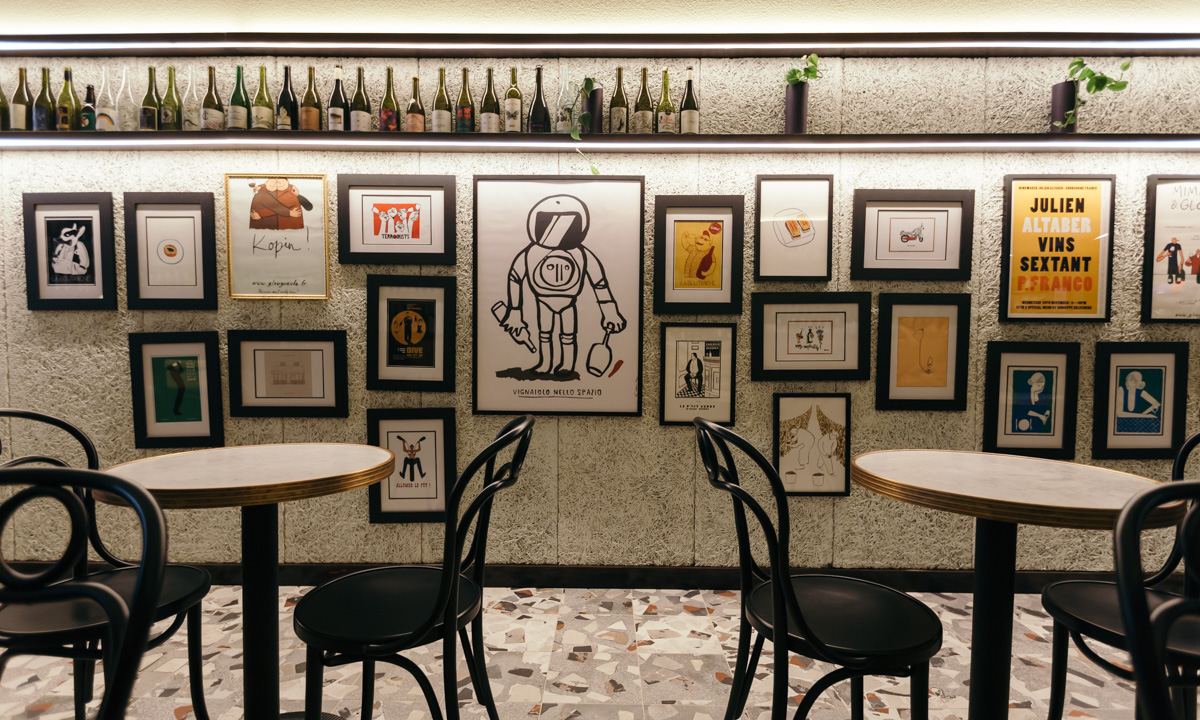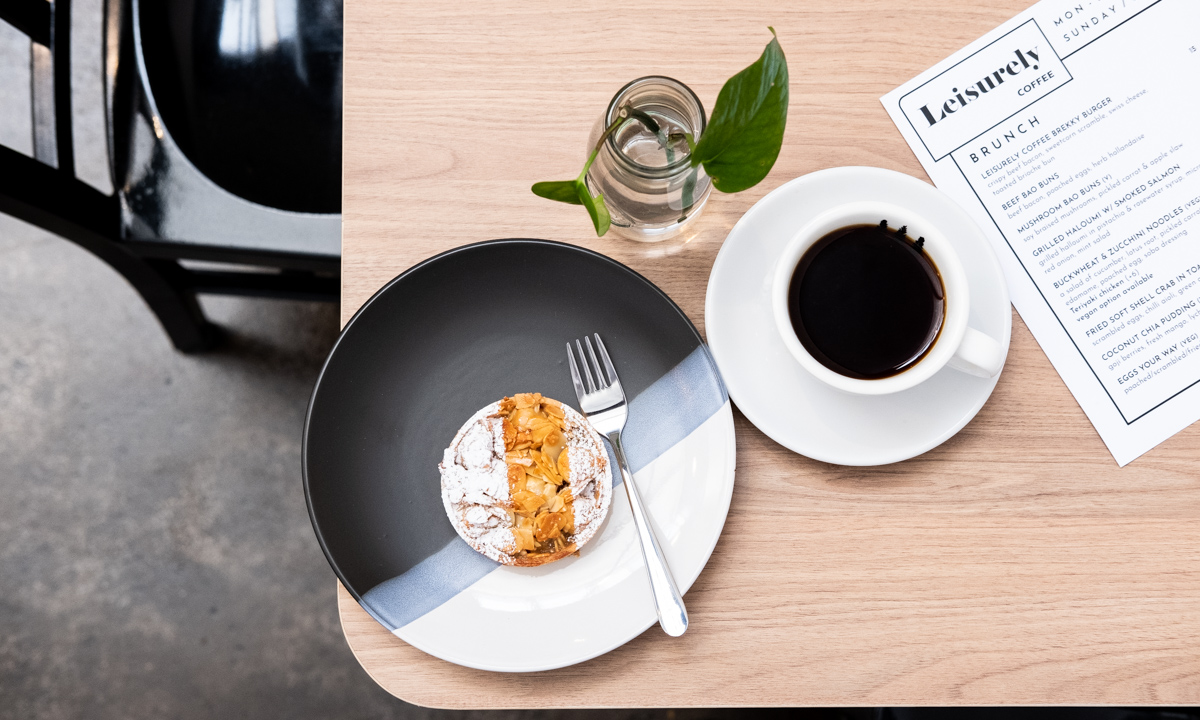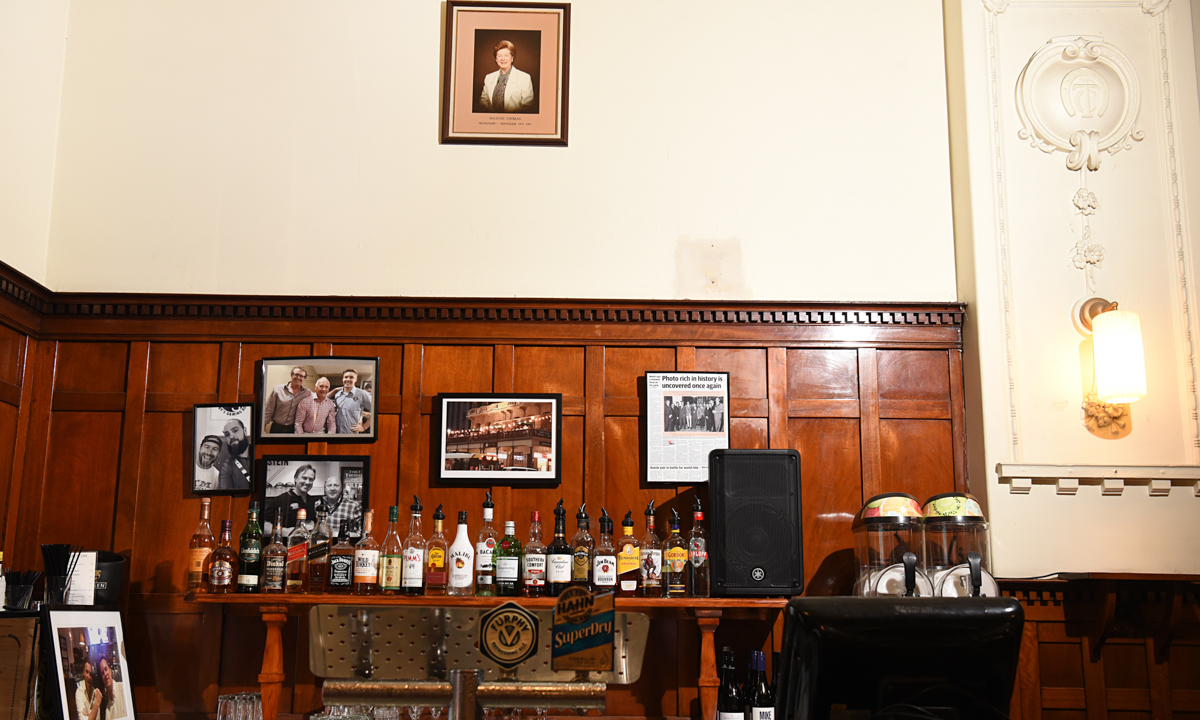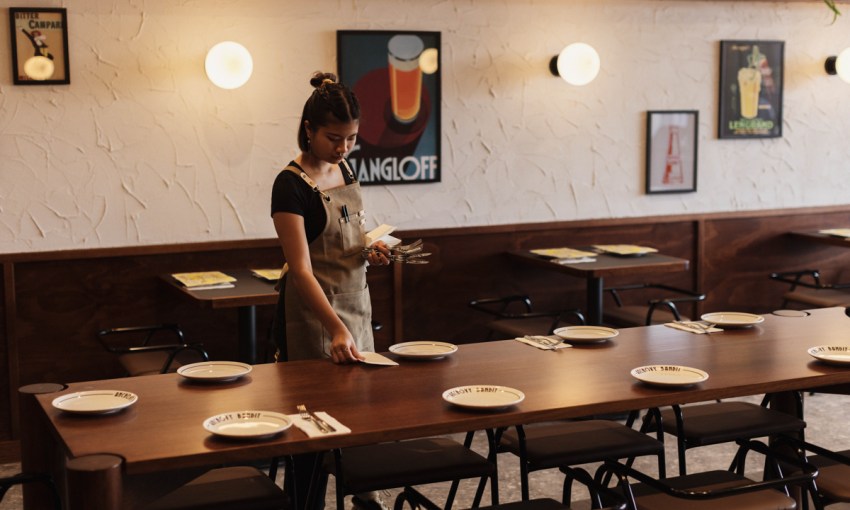The hospitality industry is riddled with issues: a mass-casualised workforce, erratic work hours and easy access to drugs and alcohol. A mental health advocacy group wants to bring about change, but six people working in the trenches tell CityMag it won't happen easily.
The frypan, the fire: Hospitality workers on the industry’s challenges
“Some places I would work behind the bar and I would be drunk, and other places my workmates would be blackout drunk, managers blackout drunk. Everyone was drunk,” says Sam*.
This article discusses mental health.
If this story raises issues for you, call LifeLine on 13 11 14.
*Names have been changed.
Sam has worked in hospitality for four years, during which he ascended the late-night pecking order from nightclub glassie to small bar bartender.
Despite the camaraderie that comes from working to appease the drunk and messy masses, he says this line of work has not been great for his mental health.
“I would finish work at 8am sometimes, wake up at 3pm, and not only would I miss out on crucial sleep but I’d often not eat properly,” he says.
“I’d start work again at 8pm. You don’t get a break from the party lifestyle.
“Some of the people that I’ve worked with are no doubt alcoholics. Drinking every day, sleeping like shit, partying every night after work. It’s really hard to not do that.”
It’s a difficult cycle to remove yourself from, he says, because of the casualised working conditions.
There is an in-built power imbalance between employee and employer, which means Sam can’t turn down shifts or take sick days without fear of losing work in the future.
To him, this leads to a “sense of hopelessness”.
“If you say no, they’ll just cut all your shifts and you’ll lose your job,” he says.
“It’s exhausting, the way you get treated by employers and customers. Bad pay, bad hours. Not healthy.
“When I’ve got my degree and education I’ll definitely move on as fast possible.”
—Rachel Clements
Three years ago, mental health advocacy group R U OK? examined the pressures and challenges of the hospitality industry, and assessed the effectiveness of available support.
The organisation commissioned a survey, which garnered 199 responses.
According to the survey, 80 per cent of respondents said mental health issues, such as feeling depressed, anxious or manic, are challenges facing the industry.
Another 50 per cent reported wanting a co-worker to ask if they were ok in the previous year.
Rachel Clements is the national psychological services director at the Centre for Corporate Health Group (CCHG), which is contracted by businesses to strengthen the mental health and wellbeing of staff in workplaces. She is also a psychologist who works closely with R U OK?
About six years ago, Rachel saw CCHG receive increasing requests from large hospitality operations asking for help for their staff.
“We were getting approached, with the hospitality industry saying… ‘Mental health is now becoming the number one risk factor that we are needing to manage as a business, and we need some assistance and support,’” she says.
“I think people have been struggling for a while, but suddenly there was the need and desire to assist. I think it was more prevalent than before.”
Rachel describes many conditions that make hospitality a particularly challenging industry for workers’ mental health.
These include the fast-paced, physically demanding nature of the work; the sometimes anxiety-inducing casual contracts; irregular, isolating work hours; and the too-easy availability of alcohol and drugs.
R U OK? has a collection resources available to people in the hospitality industry who want to keep on top of their mental health, and that of their colleagues.
To discern how practical this information is for people employed in the hospitality industry, CityMag spoke to Adelaide hospo workers about what they think will help, and what will be most difficult to fix.
The images in this article are used for illustrative purposes only and are not indicative of the workplaces being spoken about.
CityMag has respected our interviewees’ requests for anonymity where it was sought.

Leigh Street Wine Room. This picture: Julian Cebo
Lewis McDonald: Front-of-house, barista
“I was about 12 years old when I told my parents I wanted to own a café one day,” Lewis McDonald tells CityMag.
“I don’t know why, but I still do just have so many positive early memories associated with being in restaurants and cafés.”
Lewis has been in the hospitality industry for eight and a half years, cutting his teeth as a barista before moving on to work in some of Adelaide’s most well-known haunts as a front-of-house employee and manager, such as Leigh Street Wine Room, the Summertown Aristologist, and now Brid.
He says underlying anxiety and depressive tendencies were brought to the surface due the “high-stress” nature of the industry.
“The nature of providing, food, alcohol, and coffee service is stressful,” he says.
When “you’re up against an imaginary clock” serving people who “expect everything, right here, right now – and perfectly”, it can mess with you psychologically.
There is also the normalisation of the knock-off, with often free and easy-to-access booze and drugs being a cocktail for mental health issues.
“It’s just commonplace that you’ll be consuming excessive amounts of alcohol… [And] drugs – which I refused point-blank to take any part in,” he says.
“It’s just such a part of everyday life in the industry that when you add those things into the mix of already poor mental health — alcohol is a depressive substance — it just magnifies the effects, basically.”
Lewis is still committed to the industry. He eventually wants to open his own café.
When he does, he wants to ensure there are “clean lines of communication” between him as the boss and those who he employs.
If someone is not feeling so hot, he wants them to be able to come to him and explain why.
He also wants to establish a business that doesn’t rely on employees working 60 hours a week in order for it to be financially sustainable.

Extra Chicken Salt. This picture: Julian Cebo
Brad*: Sous chef
“I’ll try and get to work whatever means is quickest, and I’ll start an hour before my shift sometimes if it means I’m going to have a less stressful day,” Brad says.
“I’m not paid for that extra hour but I need a huge run-up for the day.”
Brad is a sous chef at a popular city café. He starts work at 6:30am – including on weekends – and his duties include accepting deliveries, doing dishes, cooking, cleaning, prepping, and any extra maintenance work that simply “needs to be done” because “someone needs to do it”.
He also takes a minute to prepare for the 200 covers over five hours he is required to smash out.
Much like Lewis, Brad says there’s a lot of “pressure” from customers and higher-ups to ensure the product is perfect.
Unlike other industries, mistakes aren’t easily erased. A bad meal or coffee will lead to a negative review, which then becomes an indelible digital stain on the business, lasting long after the plates have been cleared.
“The Google starring thing really does have a big impact,” Brad says.
“There’s not a lot of forgiveness in it, and stuffing up in service is a really big deal.
“But that’s just how it is, though.”
Brad doesn’t feel comfortable talking to his bosses about feeling stressed, saying “everyone’s pretty busy” and “no one cares about your personal shit”.
He once worked overseas, in a country where he says work-life balance is better appreciated. He did have more time off and didn’t burn out as easily, because time-off was always factored into his working week.
Brad also sees a time limit on working in the kitchen and keeping up with the physical tasks, such as lugging, cutting and running.
“I got a new chef at work and he was even saying, à la carte cooking is a young man’s trade,” he says.
“It’s like you’ve got to be young and agile and fit, because if you’re the slightest bit out of shape you can’t do it because it’s quite physical.
“Also, with this casualised work you never know the future. Not being permanent, not being grounded or rooted anywhere, or established, has a huge effect on how you live your life. I haven’t been able to think long-term for 10 years.”

Yolk Café. This picture: Johnny von Einem
Rosie Ames: Former barista, now front-of-house
Rosie is currently employed as a social worker in the middle of Australia and finds a lot of empowerment with her job, but she previously worked in hospitality and recalls the effect it had on her mental health.
She remembers losing a casual barista job after a family friend took his life, at a time when she wasn’t feeling too well herself.
“There wasn’t even a conversation. I was let go,” she says.
“With this R U OK [stuff], I think we might have even had one of those posters in our kitchen. The thing is, that’s no use if you’re not actually doing the practice – especially higher up.
“A lot of the colleagues, we’re all mates. We’re checking in with each other. But it’s got to do with the people above you, the people who are paying you, who need to do the work.”
Rosie worked in hospitality for eight years at three different cafés and eateries around metropolitan Adelaide. She was good at her job and enjoyed the adrenaline-filled early mornings, making coffees and preparing food for customers, who she lovingly refers to in our conversation as “darlings”.
She often felt her worst, though, when interacting with rude clientele, especially those who were encouraged to act that way by her bosses.
This had mental and physical ramifications.
“It made me feel anxious,” she says, recalling an instance when a customer threw money at her.
“And sometimes I would have stress-induced vomits. There was one time I was vomiting at work, and they were really rude to me.
“There’s this massive gap within management and I think it’s more pronounced in hospitality.”

Leisurely Coffee. This picture: Johnny von Einem
Elisha*: Former waiter, now barista
The expectation in hospitality to be smarmy is something Elisha, much like Rosie, finds particularly grating and damaging to her mental health.
“You’re not allowed to just kind of show up in whatever form that you are – you have to kind of put it on all the time, so it is really exhausting,” she says.
Elisha has worked in hospitality in varying forms for eight years, as a barista, waitress and team leader.
Aside from deploying a fake persona, Elisha struggles with the quick turnaround of the service industry and the guilt associated with taking sick leave, which comes with employment consequences.
“I’ve definitely worked in places where I’ve tried to call in sick, and have been quite sick and then have gone in because no one’s covered me, and I’m just expected to work,” she says.
“When I called in sick, a former employer’s response was like, ‘There’s no one to cover you, [so] you’re expected to be here.’
“But at the time, it was really something that I was anxious about. And also losing my job as a repercussion.”
Elisha doesn’t plan on working in this industry for very long, and is already planning a swift exit by completing a health science degree at university.
Despite meeting some of her best friends behind the counter and beefing up her social skills, she’s excited to eventually exit the industry.
She won’t miss making 500 coffees a day, running non-stop, and often missing lunch breaks.
“I’d say that it’s definitely had some really bad influences on my mental health,” she says.
“It’s such a high-stress industry; you can’t really relax when you’re at work and you’re constantly trying to get things done and get orders out.”

Harry’s Bar. This picture: Andy Nowell
Liam*: Former cook, now bartender
Prior to COVID-19, Liam’s work itinerary was hectic.
In Melbourne, he managed a venue five nights a week, and on Friday and Saturday nights, after packing up the bar from his work job, he would rush over to a nightclub, pull a shift there, and be in bed by 6am.
This was a 13- or 14-hour workday.
“You just go go go go go go. It’s appealing work because it’s fun and you meet people, but by the end of it your brain is fried,” he says.
Liam has worked as a dishie, cook, bartender and glassie in the industry for four years, and says working in a heady and hot inner-city Melbourne nightclub as his busiest job.
This role entailed both pouring drinks and watching the floor as security.
After these particularly crazy shifts, he would finish work with his colleagues by sitting around a table, drinking and doing drugs, before “everyone got too tired” and went home.
At the time, he didn’t realise the effect this was having on his mental health. He does now.
“When COVID hit… I didn’t really know how to wind down. I still don’t know how to wind down,” he says.
“I also felt this fucking looming feeling of dread because it’s just shown me how insecure the hospitality industry can be.”
After moving home to Adelaide from interstate, Liam has picked up work at an inner-city small bar.
He reports feeling much better about his mental health. He’s not doing drugs, and is even exercising self-restraint by drinking less after work.
Something he’s very conscious of, though, is that there is no “exit plan” in the hospitality industry.
He says he’s heard from those in the kitchen that as a chef you could continue doing back-breaking, often low-paying work into oblivion, or open your own venue. Same goes for front-of-house.
But even then – starting something yourself isn’t necessarily safer, and has its own mental health toll.
“There isn’t much of a career path for a lot of people in hospitality,” he says.
“I’m often like, what’s my end goal?”
He has, however, noticed a shift in conversation around mental health.
It’s now socially acceptable to not drink or take drugs after work, because “people are becoming more reflective on how they spend their time,” he says.
Liam leaves our interview to head off to work, where he plans on having one beer to knock off – that’s it.
“If I don’t get to get up early, I don’t get to spend time with my dad tomorrow,” he says, smiling.
*Names have been changed.
If this story raised issues for you, call LifeLine on 13 11 14.




